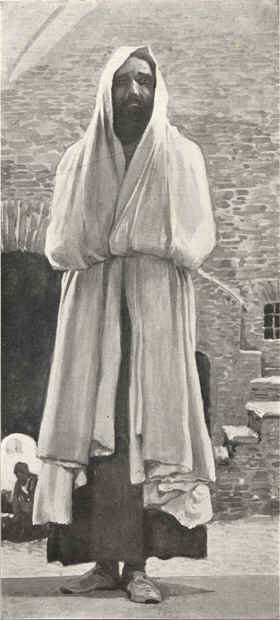Malachi
Malachi is the last book of the Twelve Minor Prophets in the Hebrew Bible and the Old Testament of the Christian Bible. Traditionally, Malachi is believed to be a prophet who lived in the 5th century BCE and is thought to have been a contemporary of Nehemiah and Ezra. The book of Malachi addresses the spiritual and moral decay in the post-exilic community of Israel, focusing on the people's neglect of the Temple worship, the improper practices of the priests, and social injustices. The name "Malachi" means "My Messenger" in Hebrew, which is fitting given the book's emphasis on the message of repentance and renewal.
Content and Themes[edit | edit source]
The book of Malachi is structured around a series of disputes between the Lord and the people of Israel. These disputes cover various topics, including the sincerity of worship, the faithfulness of the priests, marriage, divorce, and social justice. One of the central themes of Malachi is the coming of a "messenger" who will prepare the way for the Lord, a prophecy that has been interpreted by Christians as referring to John the Baptist in the context of the New Testament.
Significance[edit | edit source]
Malachi's significance lies in its emphasis on the covenant between God and Israel, the importance of proper worship, and the ethical conduct that God expects from His people. The book closes with a promise of the coming "Day of the Lord," which will bring judgment but also healing and restoration for those who fear God.
Interpretation and Influence[edit | edit source]
Throughout history, the book of Malachi has been interpreted in various ways by Jewish and Christian scholars. In Judaism, Malachi's prophecies are seen as a call to uphold the Torah and maintain faithfulness to the covenant. In Christianity, Malachi is often read in light of the New Testament, with its prophecies seen as foretelling the coming of Jesus Christ and John the Baptist.
Textual Features[edit | edit source]
The book of Malachi is notable for its dialogue format, where questions posed by the people or the priests are followed by responses from God. This rhetorical style emphasizes the disconnect between the people's perception of their actions and God's expectations.
Conclusion[edit | edit source]
The book of Malachi remains an important text in both the Jewish and Christian traditions, serving as a reminder of the importance of faithfulness, proper worship, and social justice. Its messages about repentance and renewal continue to resonate with readers today.
Search WikiMD
Ad.Tired of being Overweight? Try W8MD's physician weight loss program.
Semaglutide (Ozempic / Wegovy and Tirzepatide (Mounjaro / Zepbound) available.
Advertise on WikiMD
|
WikiMD's Wellness Encyclopedia |
| Let Food Be Thy Medicine Medicine Thy Food - Hippocrates |
Translate this page: - East Asian
中文,
日本,
한국어,
South Asian
हिन्दी,
தமிழ்,
తెలుగు,
Urdu,
ಕನ್ನಡ,
Southeast Asian
Indonesian,
Vietnamese,
Thai,
မြန်မာဘာသာ,
বাংলা
European
español,
Deutsch,
français,
Greek,
português do Brasil,
polski,
română,
русский,
Nederlands,
norsk,
svenska,
suomi,
Italian
Middle Eastern & African
عربى,
Turkish,
Persian,
Hebrew,
Afrikaans,
isiZulu,
Kiswahili,
Other
Bulgarian,
Hungarian,
Czech,
Swedish,
മലയാളം,
मराठी,
ਪੰਜਾਬੀ,
ગુજરાતી,
Portuguese,
Ukrainian
Medical Disclaimer: WikiMD is not a substitute for professional medical advice. The information on WikiMD is provided as an information resource only, may be incorrect, outdated or misleading, and is not to be used or relied on for any diagnostic or treatment purposes. Please consult your health care provider before making any healthcare decisions or for guidance about a specific medical condition. WikiMD expressly disclaims responsibility, and shall have no liability, for any damages, loss, injury, or liability whatsoever suffered as a result of your reliance on the information contained in this site. By visiting this site you agree to the foregoing terms and conditions, which may from time to time be changed or supplemented by WikiMD. If you do not agree to the foregoing terms and conditions, you should not enter or use this site. See full disclaimer.
Credits:Most images are courtesy of Wikimedia commons, and templates Wikipedia, licensed under CC BY SA or similar.
Contributors: Prab R. Tumpati, MD

